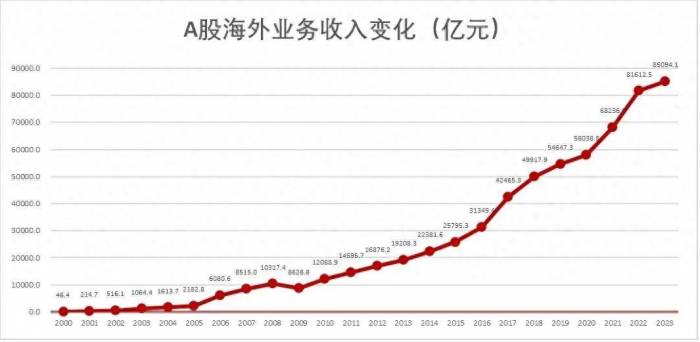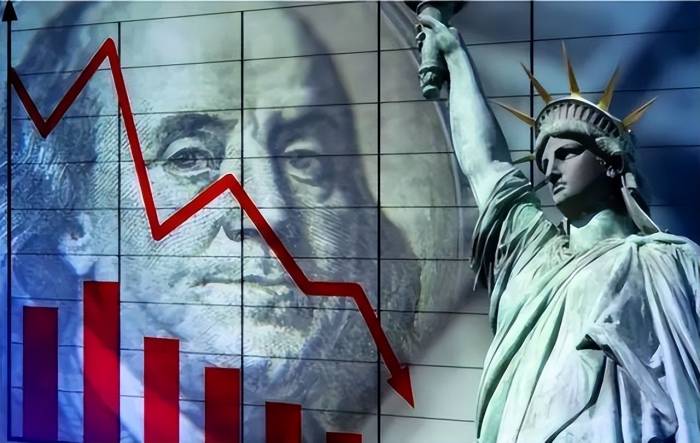Bull Market Fund
In the past few days, the market volatility has increased, and indeed, I've noticed that the number of people losing money is higher than during bear markets. This is an interesting phenomenon. After all, the Shanghai Composite Index is much higher than the 2700 points it was a month ago, so why am I hearing so much negativity around me? This is because many investors chose to increase their positions at high levels after a phase of rapid market growth, leading to even greater losses during short-term adjustments.
If I had to pinpoint the root cause for retail investors to avoid losses, it would certainly be jealousy. Please remember this: in a bull market, one must avoid jealousy! Jealousy can lead a person to leverage their investment at high levels, with an obvious outcome. It can also cause one to be gloomy in a bull market that should be joyful.
I have also seen many jokes about "retail investors losing money in a bull market." However, I really don’t want to joke about it here, and I sincerely hope every friend makes money during the bull market. After all, in today's era of economic slowdown, it has increasingly become difficult to earn money. It saddens me to see the hard-earned money people have made easily lost.
I believe the most fundamental requirement for an individual to achieve positive returns in a bull market is to maintain positive earnings. This may sound like a joke; when people enter a bull market, they definitely aim to make a fortune. But in reality, investing is a game of first managing risks, then looking for returns. We must first ensure the absolute lower limit of returns before striving for higher returns. By avoiding jealousy, one can achieve positive returns during a bull market.
So the question arises: how can one make a fortune and achieve a leap in social status during a bull market?
From my over 20 years of industry experience, I have discovered that two types of people achieve social mobility during a bull market.
The first type consists of those we cannot control, the "survivor bias" individuals who rely on luck. Just like buying lottery tickets, someone always wins, but one cannot win consecutively. Moreover, 99.999% of people will never win a big prize after a lifetime of buying lottery tickets.
The second type includes those we hope to regulate out of the system — the management who sell stocks to ordinary investors at market peaks, known as "big and small non." Many people say that a bull market ultimately results in the rich plundering the poor. In fact, the rich are not cleverer than the poor in terms of timing and stock selection. The real plundering occurs when the management sells stocks that aren't particularly valuable (even worthless stocks) to uninformed retail investors at market peaks!
If you hope to see a tenfold increase in returns during a bull market, then please stop reading because we truly do not possess the ability to achieve such returns. However, if your goal is to obtain reasonable returns during the bull market while safeguarding the absolute lower limit of earnings, our recommendation is to participate through mutual funds.
Here is our specific analysis.
Why buy mutual funds during a bull market?
Investment results are a probability distribution; each investment can either be profitable or incur a loss. What we aim to do is maintain a lower limit of risk while raising the upper limit of returns.
Suppose you are an extremely unlucky investor who enters at the peak of a bubble; the returns from buying a mutual fund will be vastly different from purchasing individual stocks. Taking the bull market in 2015 as an example, let’s assume an investor buys at the market’s highest point on June 12, 2015, facing immediate market crashes. Even with subsequent short-term rebounds, after each rebound, many stocks would hit their daily limit down.
But if you bought mutual funds, after holding them for five years, it’s very likely that the fund would return to break-even. Furthermore, at the beginning of 2021, you could have enjoyed around a 50% absolute return. Even if this investor held onto the mutual fund through the market adjustments of 2022, 2023, and the first half of 2024, the equity fund index as of now still boasts a return of 5.21%. The most this investor lost was time; they did not lose money.
However, if you purchased stocks, the story is entirely different. This stock very likely would not recover to the breakeven line within a single day. The return for the Wind All A-Share Index during the same period was -31.19%. Moreover, many retail investors are likely to invest in the particularly popular stocks like media and technology of that year; many of these top stocks from 2015 saw declines of over 90%, with some, such as LeEco, ultimately delisting. As a stock investor, the experience gained can be extremely unsatisfactory.
One common mistake retail investors make is buying junk stocks during a bull market. In a bull run, those story-based thematic stocks usually exhibit greater price elasticity and sound more appealing. However, these stocks lack fundamental support, resulting in a floorless decline. Many retail investors hope to buy more as prices fall, ultimately leading to escalating losses from worthless stocks. Conversely, if investors refill their positions in high-quality funds, they will still be able to break even given sufficient time.
Returning to the initial point, think about why "the bull market is the primary cause of retail investor losses." The essence boils down to two points: entering the market at high levels and buying poorly-performing companies. It is the junk companies that are key to causing permanent losses.
How to buy mutual funds in this bull market?
During this recent bull market, we have seen many new retail investors participating in the market through mutual funds. Especially during periods of heightened market volatility, many individual stocks perform worse than mutual funds. Additionally, volatility can easily lead to situations where one is unable to hold onto positions, resulting in buying high and selling low.
Recently, many people have been asking us how to buy mutual funds. Our answer is to refer to the TOP 100 Fund Managers list we publish at the beginning of each year.
As of October 9 this year, the 2024 Top 100 equity fund managers recorded a return of 7.85%, outperforming the 4.33% of the Wind equity fund index and the 5.95% of the Zhongzheng equity fund index. This marks the third consecutive year since we introduced this list in early 2022 that it has outperformed the Wind equity fund index. This also illustrates that selecting exceptional fund managers can lead to excessive returns.
In the data of this list, we also calculated the returns of the previous two years of the TOP 100 fund manager list. Interestingly, if our 2022 and 2023 lists had not made any adjustments, they would still outperform the Wind equity fund index this year. This also indicates that, as a whole, outstanding fund managers obtain excess returns relative to the entire market, and underperforming styles are likely to revert to the mean afterwards.
Let us take a closer look at the specific returns of fund managers this year. We find significant differences in style among the fund managers ranking high on the list, indicating that superior performance is not merely a result of benefiting from a single style, but rather that these fund managers possess genuine excess returns.
Let’s take a few specific examples. This year, the best performer on our list is Wang Peng from Manulife Fund, who follows a typical industry boom style, showing a return of 37.16% so far this year. Following him, Zhang Yufan from ICBC Credit Suisse also falls into the industry boom category, yet her methodological framework differs significantly from Wang Peng’s.
It’s broadly acknowledged that this year the deep value premium style has performed exceptionally well; managers like Lan Xiaokang of CCB Fund, Wu Xuan of Penghua Fund, and Jiang Cheng of Zhongtai Asset Management are also ranked highly on our list. However, Liu Xu of Dacheng Fund, who follows the quality value style, has achieved remarkable results this year. Furthermore, despite many believing this year’s style is unfavorable for growth, Sun Wenlong of Baodao Fund has also managed a solid return of 18.94%. Additionally, fund managers like Wang Shicong from Southern Fund, Zhang Feng from Fortune Fund, and Ning Jun managing Hong Kong stock funds have ranked prominently as well.
This means that regardless of your preferred investment style, you can find fund managers on this list who meet your requirements. We still believe that outstanding active equity fund managers are capable of generating excess returns and provide everyday investors access to affordable alpha.
In addition to actively managed equity funds, investors can also purchase more transparent and standardized ETFs. In recent years, the largest growth point in China's asset management industry has been ETFs. As of the end of July this year, the total size of ETFs in the domestic market has surpassed 2 trillion yuan. It took 18 years to grow from 1 to 1 trillion, while the leap from 1 trillion to 2 trillion took less than 2 years.
In this bull market, many new investors have also participated directly through ETFs. ETFs have several obvious advantages:
1) High trading convenience, allowing investors to buy and sell swiftly like stocks, satisfying some investors’ trading needs in a high-volatility market;
2) Sufficient clarity and transparency, allowing everyone to buy relevant industry and thematic ETFs based on their market views. For instance, there are ETFs related to the Hang Seng Technology, chips, Sci-Tech Innovation 100, and new energy vehicles;
3) Greater product innovation; whether it's core broad-based or segmented markets, more products are being launched, including ETFs covering global stock markets and commodities. Any investor’s needs can find corresponding product solutions through ETFs;
4) Lower fees, making it friendlier for investors who do not wish to hold positions long-term.
So how should everyday investors buy ETFs? I will first approach this from a negative list perspective.
One should definitely avoid ETF themes that will continue to decline in the next few years. For example, in 2015, the media industry was at a high point but has since been one of the worst-performing sectors for several consecutive years. This was due to both the valuation bubble at the time and the pressure for a lot of goodwill to be repaid after mergers and acquisitions concluded. If one had invested in a media ETF at that time, they might have been locked in for many years while still unable to break even.
Essentially, we can divide ETFs into two main categories: core broad-based and industry thematic. Regardless of which category, we need to buy those products that can rise long-term. Otherwise, an ETF only has trading value, not holding value. Today, with the significant increase in the number of ETF products, everyone should carefully filter the options available. Be sure to buy industry themes that have long-term positive prospects.
As for core broad-based ETFs, one should also focus on buying those that can perform well in the long term. For instance, the A500ETF that is currently listed has been shown to be a better core broad-based option compared to the CSI 300 based on data. Previously, we studied the CSI Dividend Index, which has also long outperformed the CSI 300.






























Join the Conversation